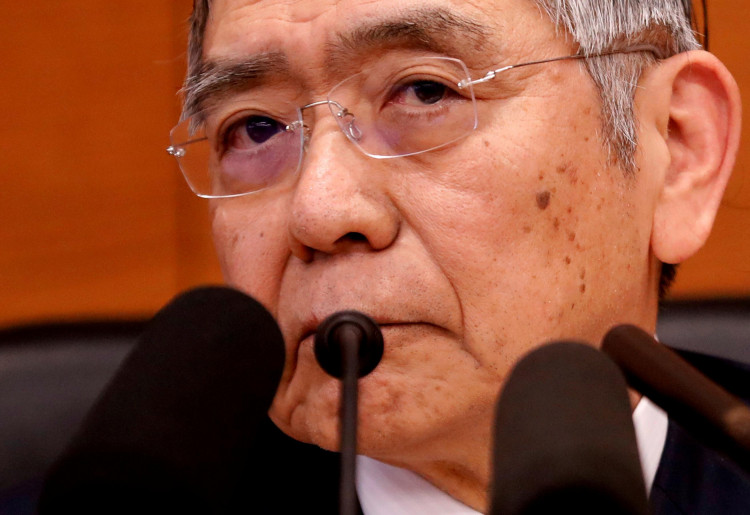Japan's economy worsened faster than first thought in the final quarter to highlight the largest fall in over five years as corporate expenditures on manufacturing, equipment and land plunged, casting a darker shadow on forecast as the coronavirus elevated the risks of a recession.
The country's economy shrank at a dismal 7.2 percent annual rate in the October to December period, much worse compared to initial projections. It was the first contraction for Japan in over a year and followed an October 1 hike in the sales tax, which dealt a heavy blow to retail spending.
A sharp decline in the currency added to rising worries among policymakers about the capacity of the world's third biggest economy to combat the negative effects of the virus and a collapse in oil prices. Japan's currency regulators also cautioned against excessive currency exchange moves after the yen rose to its highest mark in over four years.
The gloomy figure adds pressure on the Japanese government and the central bank to initiate stronger fiscal and monetary aid to boost a weak economic recovery. According to Tom Learmoth, economist at Capital Economics, any recovery in the first quarter has been averted by the unabated spread of the coronavirus worldwide.
The numbers do not reflect the huge setback in tourism and other business activities in relation to the coronavirus outbreak that has made its way from Wuhan, China to a large portion of the world. Most analysts anticipate another contraction in the latest quarter, and perhaps for the entire year, for the world's third biggest economy.
Japanese Prime Minister Shinzo Abe expressed his concerns on Monday about the ill effects of the coronavirus on the country's tourism and manufacturing industries. Abe is set to flesh out new economic measures Tuesday, having rolled out interest-free loans for small companies, but it is not yet clear what can be done to pump growth in the midst of an outbreak that is keeping customers and employees home.
Investments fell 4.5 percent from the last three months, worse than the initial 3.6 percent drop and the largest decline since 2009, in a sign moderate demand and the China-US trade dispute took a toll on capital flows. The retreat in local demand casts a dark shadow on the argument of Bank of Japan Governor Haruhiko Kuroda that strong capital expenditure will hedge some of the troubles from soft exports.
Meanwhile, a (technical) recession is defined as two consecutive quarters of economic and financial contraction. Yoshimasa Maruyama, analyst with SMBC Nikko Securities, described Japan's current situation as "serious."






